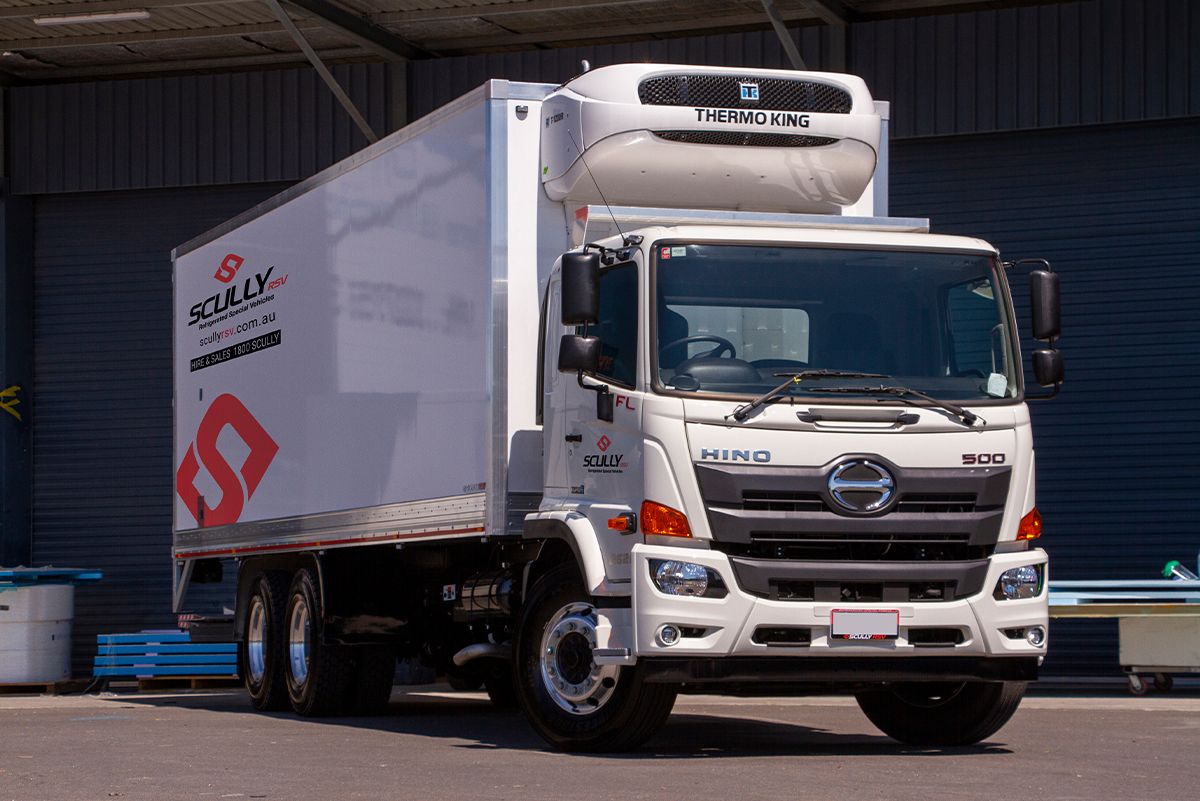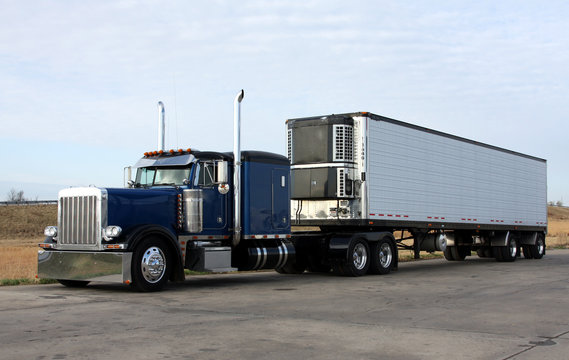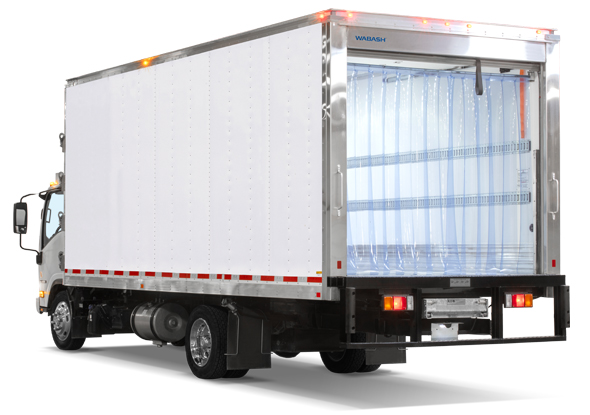Reefer Trucks Thermo King: Leading the Way in Cold Chain Innovation
Reefer Trucks Thermo King: Leading the Way in Cold Chain Innovation
Blog Article
Picking the Right Transport Refrigeration System for Your Fleet
Selecting an appropriate transportation refrigeration system for your fleet is a critical choice that can dramatically affect operational effectiveness and item honesty. It demands a thorough understanding of your particular refrigeration demands, including temperature requirements and distribution timetables.
Recognizing Your Refrigeration Needs
When picking a transportation refrigeration system, recognizing your specific refrigeration requirements is extremely important to guaranteeing item high quality and compliance with industry requirements. Numerous elements need to be considered to identify the most suitable system for your procedure. These include the sort of products being transported, their temperature level demands, and the period of transportation.
For disposable goods, such as fresh produce or pharmaceuticals, exact temperature level control is critical. Comprehending the temperature variety required for each product permits the choice of a system that can preserve those problems continually. Furthermore, consider the regularity of deliveries and the range traveled; longer journeys might require systems with improved insulation or back-up power options to stop temperature level fluctuations.

Furthermore, the capacity of the refrigeration unit need to align with your lots size. By completely analyzing these elements, you can guarantee that your selected transportation refrigeration system efficiently fulfills your functional demands and preserves item integrity.
Types of Transport Refrigeration Equipment
Selecting the right sort of transportation refrigeration system is essential for making sure the safe transit of temperature-sensitive goods. There are several systems readily available, each designed to fulfill particular requirements and applications.
These systems are usually favored for their performance and lower preliminary prices. Another alternative is the central refrigeration system, which offers multiple areas or automobiles from a solitary compressor system.
Additionally, there are self-supporting refrigeration devices that combine the compressor and evaporator in one package. When room is restricted, these systems are excellent for smaller sized cars or. For specialized applications, such as transporting perishables or drugs, cryogenic refrigeration systems might be made use of, employing liquid nitrogen or carbon dioxide to maintain ultra-low temperature levels.
Finally, hybrid refrigeration systems that integrate diesel and electrical power are ending up being significantly popular, using versatility in power usage and lowering environmental influence. Understanding these various kinds allows fleet operators to make educated choices tailored to their particular operational requirements.
Key Functions to Think About
Just how can one make sure that a transportation refrigeration system satisfies all operational needs? To accomplish this, several crucial attributes should be thoroughly evaluated. Temperature control is critical; systems should supply precise temperature setups to suit numerous products, ranging from iced up products to subject to spoiling items.
Power performance is another crucial factor to consider, as it impacts functional expenses. Look for systems that utilize innovative modern technology, such as variable rate compressors, to maximize power use without jeopardizing efficiency.
Another attribute to assess is the integrity and durability of the equipment. Systems created from top notch materials and designed for resilience against harsh conditions will certainly reduce upkeep expenses and downtime.
Furthermore, the simplicity of upkeep official website and ease of access of elements can considerably affect functional performance (reefer trucks thermo king). Functions like modular layouts or remote surveillance capacities can improve service procedures
Lastly, compatibility with existing fleet management software application can enhance monitoring and reporting procedures. By concentrating on these vital functions, fleet operators can guarantee that their transportation refrigeration systems not just satisfy present needs but likewise adjust to future demands.

Budgeting for Refrigeration Solutions
Reviewing vital functions of transportation refrigeration systems is just one component of guaranteeing functional performance; budgeting for refrigeration services is just as essential. A well-structured spending plan not only incorporates the preliminary purchase cost yet likewise thinks about lasting functional costs, including power consumption, maintenance, and possible fixing demands.
When developing a budget plan, fleet supervisors must first assess the overall expense of possession (TCO) This consists of not only the acquisition prices however likewise continuous expenses connected to sustain efficiency and the sturdiness of the refrigeration devices. Choosing systems with greater energy effectiveness ratings may produce significant financial savings over time, alleviating ahead of time prices.
Additionally, fleet operators need to account for potential scalability. As services grow, the refrigeration needs might transform, necessitating upgrades or added units. Preparation for these future expenditures can avoid economic strain.
Funding alternatives can likewise play an essential function in budgeting. Leasing, fundings, or outright acquisitions each have distinct monetary ramifications, and understanding these can assist in making a notified choice. Eventually, a comprehensive budget plan that takes into consideration both instant and future requirements makes sure that transportation refrigeration systems add positively to the general operational performance of the fleet.
Upkeep and Assistance Choices
In the realm of transportation refrigeration systems, effective maintenance and support choices are vital i loved this for making sure optimal performance and durability. Regular upkeep is necessary to prevent failures and keep the integrity of temperature-sensitive freight. It is recommended to develop a regular evaluation schedule with qualified technicians that can execute needed checks and repair work on refrigeration units.
Assistance choices must include a durable solution contract, covering both routine maintenance and emergency repairs. This makes certain that your fleet has accessibility to trigger support, reducing downtime and preserving functional performance. Many suppliers use thorough support plans that include training for your staff, enabling them to do standard troubleshooting and maintenance jobs.
In addition, using remote surveillance modern technology can improve your maintenance strategy - refrigerated transportation thermo king. These systems offer real-time data on temperature level and performance, enabling for aggressive steps before problems escalate. Purchasing training and modern technology not only improves your fleet's dependability but likewise extends the life-span of your refrigeration systems
Eventually, a calculated technique to maintenance and support will protect your financial investment and ensure that your transport refrigeration systems run at peak efficiency, providing constant results for your service.

Final Thought
In final thought, selecting the proper transportation refrigeration system for a fleet necessitates a comprehensive assessment of specific refrigeration demands, system types, and essential attributes. Prioritizing operational performance, energy intake, and upkeep factors to consider is critical for ensuring integrity. Additionally, careful budgeting and planning for future scalability will certainly add to the lasting success of the refrigeration method. Eventually, a knowledgeable decision will enhance item integrity and optimize general logistics procedures within the fleet.
Picking a suitable transport refrigeration system for your fleet is a vital decision that can dramatically influence operational performance and item honesty.When choosing a transport refrigeration system, comprehending your particular refrigeration demands is critical to making certain product top quality and compliance with industry requirements. By thoroughly assessing these factors, you can make sure that your selected transportation refrigeration system properly satisfies your operational demands and preserves item honesty.
Eventually, a comprehensive budget that thinks about both instant and future navigate here requirements makes sure that transport refrigeration systems contribute positively to the overall functional effectiveness of the fleet.
In final thought, picking the ideal transportation refrigeration system for a fleet demands a complete evaluation of details refrigeration requirements, system kinds, and necessary features.
Report this page